Memorie.al / It was August 1944, the turning point of the war had begun and the German Nazis were under attack from the Anglo-American allied forces abroad and the partisan forces, throughout the territory of our country. In the infamous mass extermination camps, they continued to bring prisoners of war and convicts from the prisons of fascism. Guided by this practice, on August 26, 1944, the Germans took 92 political and patriotic prisoners from the Tirana prison. These were delivered to them by Xelal Staravecka and Mark Berisha, who were, respectively, the first commander of the Gendarmerie and the second director of the prison. The Germans did this without leaving any official documents.
The news about the internment of the prisoners had spread rapidly throughout the city of Tirana. At the entrance of the prison, many citizens, mothers, fathers, wives, children, sisters, brothers, and other relatives of the prisoners had gathered, who had come to see them off, perhaps for the last time. The atmosphere was painful. Pain that was expressed on their faces and words to their sons and daughters, that the barbaric enemy was already ripping them from the bosom of the Motherland to take them to who knows where, away from it.
In addition to the pain, manly attitudes were also manifested, both by the prisoners and by the citizens. Slogans such as: “Long live our sons, death to the fascists” were heard! And when the engines of the cars started, the last words were: “Stand like men. See you safely in free Albania”! Meanwhile, the prisoners began to sing patriotic songs, songs, which continued despite the insults and beatings of the Germans.
Accompanied by these words, between the hands that were extended towards us and the roar of the songs, the armored motorcade with German soldiers and officers, who were in every car, but also at the top and at the end of it, started to move through the darkness of the night. , to an unknown direction, somewhere in Yugoslavia, Germany or Austria…!
The movement was carried out on the route Tirana – Shkodër – Vau i Dejës – Pukë – Fushë Arrëz – Kukës – Prizren – Pristina. This route was made in 3 days. On the first day, after we passed the city of Shkodra, the motorcade was stopped and we were dropped off and taken to a church located next to the road. Getting out of the car and entering the church was accompanied by insults and whipping, as if we were animals. One of the internees, the whip hit him on the head breaking his glasses, his face was covered with blood. The friends who were nearby lifted him up and took him by the arms into the church. As they made sure that all the internees were inside, the Germans closed the door on us, but without asking about our vital needs.
I remember how after a few hours, when it was just starting to get dark, one of the internees wanted to go out for personal reasons, but the German guard wouldn’t open the door for him. The detainee was religious and considered it a sin to defecate in the church, so he insisted on getting out by banging on the door. German was heard from outside and before long the door opened. The prisoner tried to explain himself, but the Germans took him out and executed him on the spot. While two of them dragged him away, the others cursed and closed the church door again.
The infamous camp of Pristina
At the dawn of the third day, the motorcade stopped in the city of Prizren. The citizens greeted us with their hands and we greeted them back with our hands and the words: Death to fascism! As it got dark, the motorcade started again and near midnight it stopped on the outskirts of a city whose lights could be seen from afar, it was Pristina. This was the last stop; we had arrived at the Pristina internment camp.
This camp was on the outskirts of the city, surrounded by several barbed wire fences, organized in such a way that any attempt to escape would end in complete annihilation. In the camp, the internees were kept in silos made of wooden boards even. The silos were divided into rooms, where 40-50 people were kept in each of them. In this camp, the internees were from different nationalities, Albanians, Italians, Yugoslavs, Greeks, Jews, etc.
We became more than 1000 people. The regime in the camp was monotonous. In the morning we were woken up under the screams of the guardians and the Germans who, not only that, but also used the whip. Then line-up, gymnastics, work, and work again, whenever the Germans needed it. Food was enough to keep the spirit alive. Some bread, in the morning, fodder juice and at lunch and dinner, wheat juice.
Food and cigarettes “falling from the sky” on the streets of Pristina.
In one case, some of my friends and I were taken to work at the Pristina train station. Here they put us to work like horses, forcing us to pull the cart. The train coming from Greece was being unloaded. The goods were parcels that German officers and soldiers sent to their families in Germany. They were put into several warehouses located far from the station.
Each cart was pulled by two internees, accompanied by armed German soldiers, but who also carried a whip. Citizens of Pristina, passing by looked at us with pity. They stealthily put a piece of bread, some cigarettes, etc. on the side of the road somewhere. While walking, we would approach the side of the road and stealthily take these gifts, which we would then share with our friends in the camp.
When the Germans spotted us, they whipped us, cutting off our hands and destroying the food we had taken. I remember one occasion when I was spotted by the Germans while I was distributing cigarettes brought from abroad to your friends. They not only collected all the cigarettes, but decided to punish me in an exemplary manner.
After lining up my friends, they laid me on a bench in the camp yard and ordered to give me 100 sticks. The German soldier who struck did not spare his hand. I was mentally counting through my teeth, every stroke. I remember I managed to count to the 44th stroke, then I passed out.
When I came to, I saw that I was in the shed in my sleeping place. On top was my friend Ramazan Kruja, who tried to soothe my pain.
How did we structure a battalion inside the camp?!
In the camp we were organized into squads, companies and battalions. So, ready that with the explosion of the camp, we would not return home, but continue the fight against the Germans and their collaborators. The commander of our battalion was Luigj Filipi, an energetic boy from the city of Shkodra, who was in this camp together with his brother Mark Filipi and his fiancee.
I had the duty of commissar of the first company. This military structure within the camp, functioned by performing those tasks, which allowed the concrete situation in which we were. Thus, through the Albanian gendarmes who worked in the camp, she kept in touch with illegal units operating in the city of Pristina and its surroundings. He studied every possibility for the exit of the internees from the camp.
The night of “St. Bartholomew” the Germans shot 104 of our friends!
The German troops, under the continuous attack of the partisan forces and unable to neutralize them, took revenge on the defenseless population, making reprisals. The event of October 23, 1944 is also related to this.
Partisan forces had given successive blows on the Kukës-Prizren crossing, where the Germans had suffered great losses. As revenge for this defeat, the German command had decided to shoot 104 internees in the Pristina camp.
Two days earlier, in secret, at night, the Germans took a group of Italian and Yugoslav internees and sent them to work digging a large pit near the barracks, which were on the outskirts of the camp. They had given orders not to open their mouths about this. But upon returning from this work, the Italian internee Gildo, secretly and risking himself, came to our room and informed us about this action of the Germans, which warned of something bad. We gathered, analyzed the information and ordered all comrades to carefully follow any further actions of the Germans.
The day after the opening of the pit, the Germans lined up all the internees in the camp yard and under the watchful eye of their forces, the camp administration, began an unusual appeal. A name was read and the internee who affirmed was taken aside. One name and sometimes two names were passed without being read, the name that came next was read and this person was put aside again. So it continued, until it was passed to the bottom of the list.
The internees taken aside were counted. This figure was reported to the hierarchs, who ordered that the appeal be made once again from the beginning, but in the same way. Apparently, the number 104 had not yet been filled. When this number was reached, the appeal was terminated. The comrades separated aside, put them in a very small special car, so much so that they could barely raise their hands to greet us. As for us, they ordered us to enter where we had been before.
We thought that this separation would have been done to take them to some new work front. It would have to be the middle of the night that day, for us to learn that our friends had separated them to shoot them. That hole opened the day before, was prepared for them. Near the silo, there were two rows of Germans and at the top of them, the cars were waiting. The door of the vat was opened, the Germans grabbed the internees two by two and after undressing them in a nearby room, put them in the car that was waiting at the exit of the camp.
We were all stuck inside the door of our silo and through its cracks, we watched the tragedy that was happening to our friends, whom we would never meet again. But still, unable to come to their aid, we started throwing slogans and singing patriotic songs to lift them up morally. The whole camp howled. It was up to our friends to pass by our door. At one point, one of them, passing by, dropped his jacket next to our door, which was immediately pulled back by those near the door.
On the lining of that jacket was the organization of our battalion. This is a gesture of the high morale of our friend, who even in the last moments, had the strength to think about what was entrusted to him. In front of such a situation, some internees took the initiative and broke the ceiling of the room where they were and through it, the passage to our room was made. This action was dictated by the Germans, who for a moment stopped their actions and, after opening the door of our room, insisted that the evacuees come out.
An Albanian gendarme named Veli, who was a tool of the Germans, translated the words of the German capo: “Take out the newcomers, otherwise we will kill you all.” No step was taken forward. Word of mouth spread the slogan, “O all, O none”! Then the Germans determined on their crime, went from the end of the room and took 3 internees, who were caught by the hand. Among them, only one was from the newcomers.
The attitude of our comrade in war, Musa Agolli, who despised death, calling out: “Comrades, goodbye, take the hack, fight comrades as long as you live, destroy fascism” will remain unforgettable! And he fought with them, until the German officer, who was directing this massacre, shot him with a machine gun at the threshold of the silo and he fell dead.
Our spectacular escape from the camp and the help of the Kosovar family
All the time that we were in the Pristina camp, we were accompanied by the idea of exploding the camp and escaping from it, in an organized way, but also individually at every convenient moment. For some time, my two friends and I were assigned to work in the camp hospital. The task we performed was to clean the floors and other premises of the hospital. We, studying the situation, came to the conclusion that there was an opportunity to escape.
This is due to the fact that the water needed for washing was filled outside the wires at the fountain, where the nearby residents also filled it. On the other hand, it was noticed that both the guard of the observation tower and the German soldier accompanying us were not very attentive. I mentioned above that there were also some Albanian gendarmes serving in the camp, among whom there were those who were willing to help us. One of them, at our request, brought us three cells, which would serve as camouflage during our escape.
One day at lunch, we decided to make the escape. At lunch time around 13.00, we had to fill up with water. We took the big bin and headed towards the fountain, then another friend came to us, who knew our purpose and decided to face the consequences of this initiative. With the three of us holding the can, we approached the fountain, the German guard following us with his eyes. We put the bin under the eye and it was filling up, there were citizens around the fountain.
Meanwhile, out of the corner of our eye, we watched the guard, and when we noticed for a moment that he lost his attention towards us, we slipped through the crowd and entered a nearby alley. The act of escape was accomplished. Now we had to disguise ourselves, hide and move as far away from the camp as possible. We took out the cells from the breast and put them on the head. Now we looked like Kosovars, free residents of the city.
But soon, the crackles of the machine gun were heard, the guard had noticed that we were not near the bin and had given the alarm. In addition to the crackling of the machine gun, the whining of German tricycles was also heard. They were put in our research. One of the tricycles passed in the alley where we were. They didn’t notice us. The cells had done their job. In these conditions, we could not stay long in the streets of Pristina, we definitely had to take shelter somewhere.
That’s why we decided to enter a house, which we judged from the outside that it could be inhabited by good Albanian people. We decided to present ourselves to him as to who we were and that we sought the Albanian’s loyalty. The house we entered had a small yard surrounded by high walls. From the courtyard, we entered directly inside the house, where we found two old men and a girl, they were Albanians.
While we were explaining who we were and that we were asking for the loyalty of the Albanian, the girl had run away from our eyes and left.
This worried us, but still we did not leave, because it seemed to us the most suitable place of refuge. When we asked the elders where the girl must have gone, they answered that she might have gone to her fiance, a pharmacist from Elbasan, who had come to Pristina for work. Several hours had passed since the escape. Over Pristina, night was falling. We were experiencing the girl’s departure with concern. Maybe he went to accuse us! But immediately we heard footsteps, we looked at each other. The steps were light, not heavy militia shoes. From outside, we heard the voice of the girl’s fiance, telling the elders to open the door because he was with their daughter.
We calmed down and after introducing ourselves to the newcomer, who seemed to us a good man, we told him that we would not stay long, that we would leave that night. But he had to look for and meet our friend, who had brought us the cells, who would take us out of the city. The pharmacist from Elbasan, did not last long, took the two old men and his fiancee and left with the promise that he would carry out the order.
The hours seemed long to us, we were waiting and thinking about how we would act for each situation. Shortly after midnight, we heard heavy footsteps in the yard. We thought we would be betrayed, but the voice of our friend, who had come second nature, calmed us down. He, after greeting us and expressing his joy at our escape from the camp, told us that there was no time to lose, but that we must move on. The streets of Pristina were patrolled by the Germans at night, we had to bypass them, otherwise we were annihilated. We started the movement.
Our friend completed his mission to the end. We said goodbye to him and his friend, who now became our friend, and according to a given orientation, we continued to slide through the hills around Pristina, to the Partisan Headquarters Kosovo – Metohi, to then join the partisans of the 5th Assault Division of the Army
Albanian National Liberation, with commander Rrahman Parllaku and commissar Ramiz Alina. This division, where I took over the post of Liaison chief, pursued the Germans with frontal combat, as far as Novi-Varosh.
The list with the names of the 104 shots in the Pristina Camp
- Abdulla Adem Kastrati
2. Abdurahman Duro Habibi
3. Aleksandër Pandeli Jorgoni
4. Anastas Miti Konomi
5. Avni Emin Bejgo
6. Beqir Caca (Cane)
7. Bilal Sherif Gonxholli
8. Cen Cuf Broja
9. Dhimitër Ilo Dunga
10. Dhimitër Koçi
11. Dhimitër Mema
12. Enver Hamit Velaj
13. Enver Trebishti
14. Faik Bajrami
15. Faik Rexhep Pahia
16. Faslli Rexhep Zogu
17. Fiqiri Osman Begeja
18. Foni Thoma Keko
19. Gjikë Kol Kuqali
20. Grigor Dunga
21. Haki Selim Shehi (Shehu)
22. Halil Hysen Lapi
23. Hamdi Rrapi
24. Hamza Sali Shehi (Shehu)
25. Harallamb Thanas Papa
26. Hasan Zeneli
27. Hektor Ibrahim Shyti
28. Hysen Haki Beqiri
29. Hysen Mustafa Koxheri
30. Hysen Mustafa Palluqi
31. Ibrahim Fishta
32. Ibrahim H. Ishmi
33. Ibrahim Halil Hasmema
34. Ilia Baulli (Balliu)
35. Ilia Gjylbegu
36. Ilia Thimi Kote
37. Irfan Rifat Tomini
38. Kasem Mahmut Balluku
39. Kiço Kostandin Dukolli
40. Kostantin Pavllo Mema
41. Kozma Filip Andrea
42. Kristaq Andon Boshnjaku
43. Kristaq Pavllo Mema
44. Lame Thoma Koleta
45. Ligor Ilo Dumga (Duka)
46. Ligor Tingo
47. Llukan Dhimitër Stefani
48. Loni Lili Papuçiu
49. Luçi Pilo Gollani
50. Manol Pano Basho
51. Murat Destan Murati (Sulaj)
52. Muhamet Ismail Tufa
53. Muharrem Bajram Lami
54. Muharrem Riza Gjashta
55. Musa Myftar Ceno
56. Musa Zija Agolli
57. Myftar Hysni Sevrani
58. Namik K. Gjergjani
59. Nasho Duro
60. Nevruz Sherifi
61. Niko Lili Avrami
62. Oresti Aristotel Dilo
63. Osman Hasan Muaxhiri
64. Osman Xhiza (Axhika)
65. Panajot Biri (Bitri)
66. Panajot Mança
67. Pandi Dhiogjen Bode
68. Pandi Z. Foti
69. Pilo Polo Noti
70. Qazim Fetah Llazani
71. Ramazan Sadik Shijaku
72. Ramazan Shaban Farka
73. Reshit Rakip Mustafa
74. Sabaudin Minxholli
75. Sadik Murat Petrela
76. Sejfulla Ram Ahmetaj
77. Shaban Ibrahim Jegeni
78. Shaban Kadri Çelaj
79. Shaban Tahir Kurti
80. Shaban Zeneli
81. Shaqir Xhemal Metani
82. Shefqet Sulejman Haxhiaj
83. Shyqyri Isa Toska
84. Shyqyri Xheladin Bushati
85. Shyqyri Xhemal Greblleshi
86. Shyqyri. Qemal Bilbili
87. Skënder Skëndo
88. Sotir Shani
89. Spiro Postol Velko
90. Stefo Sokrat Guraj(Curri
91. Tajar Fejzulla Guranjaku
92. Tajar Maliq Mitarja
93. Tasim Riza Shehi (Shehu)
94. Theodhor Açiçi (Asisi)
95. Vasil Theodhor Papingji
96. Vasil Ilo Tela
97. Vasil Llambi
98. Venedik Izet Hoxha
99. Vesel Kapinova
100. Vesel Shefik Dyrko
101. Xheladin Sadik Fishta
102. Xhemal Abeshi
103. Xhemal Osman Mema
104. Xhemal Riza Bushati




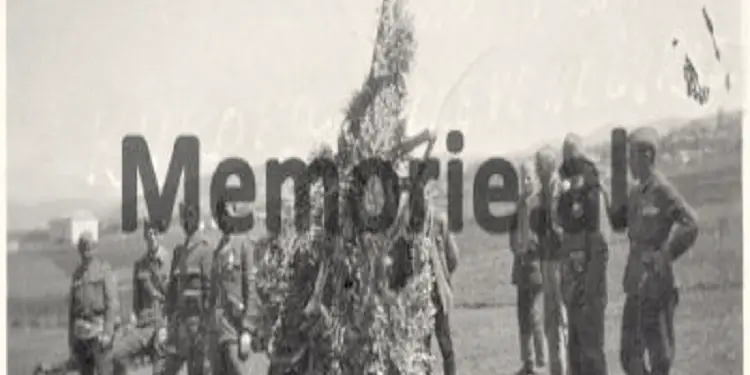
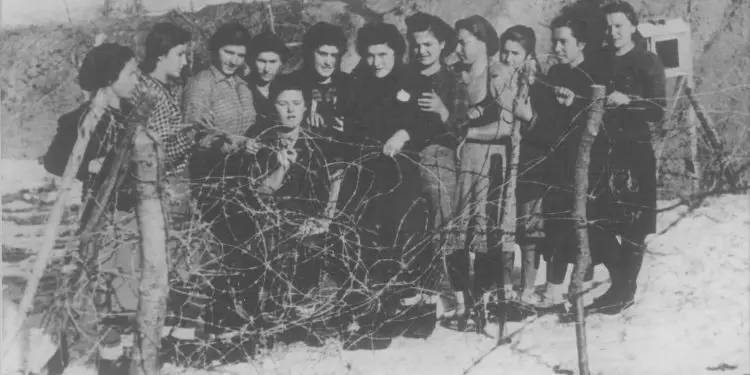
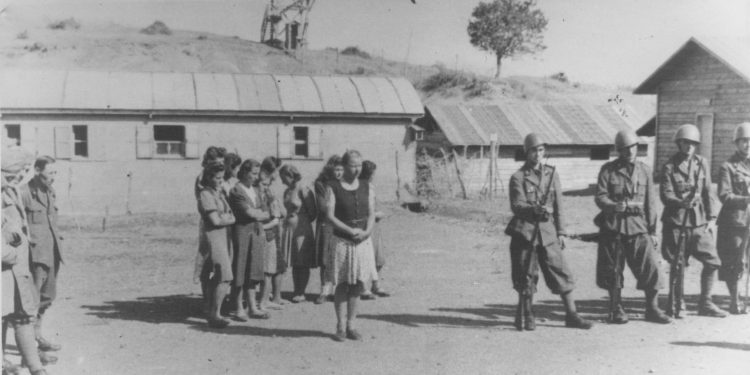
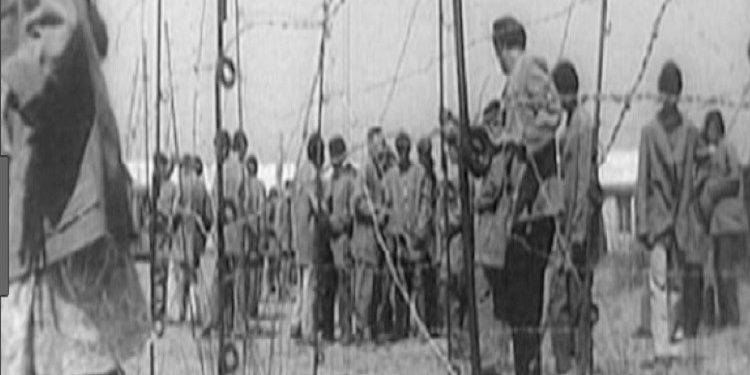
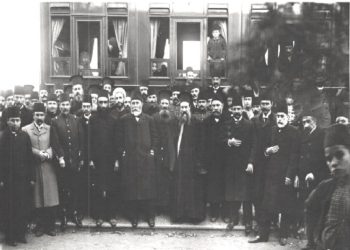
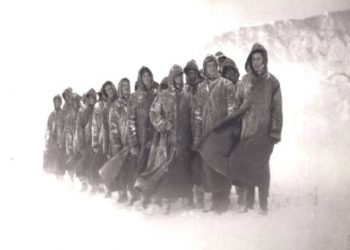

![“When the party secretary told me: ‘Why are you going to the city? Your comrades are harvesting wheat in the [voluntary] action, where the Party and Comrade Enver call them, while you wander about; they are fighting in Vietnam,’ I…”/ Reflections of the writer from Vlora.](https://memorie.al/wp-content/uploads/2025/06/admin-ajax-4-350x250.jpg)


